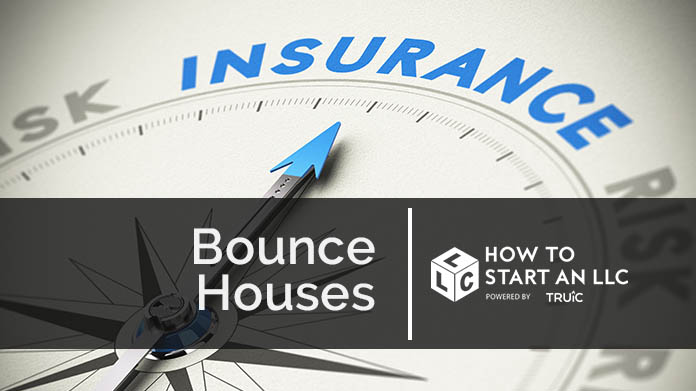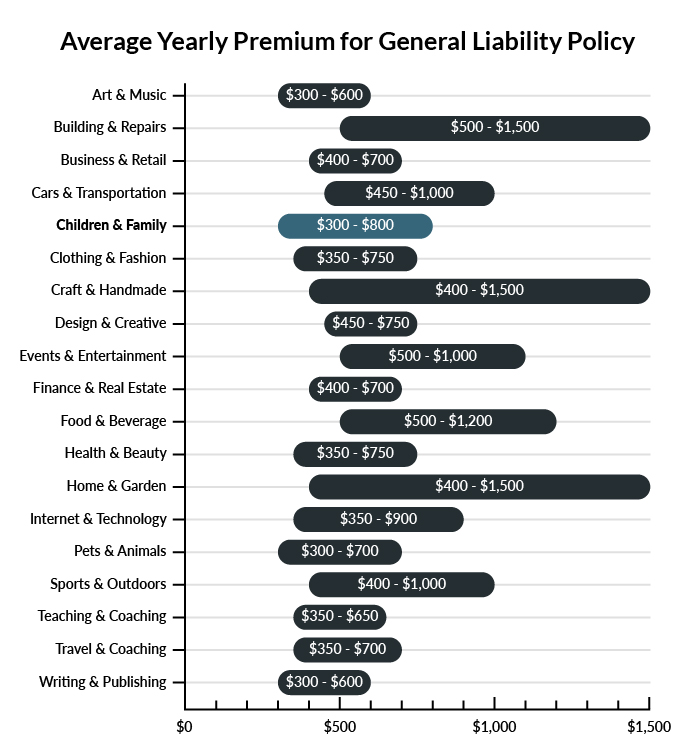Bounce House Insurance
Getting insurance for your bounce house business is essential.
Bounce house insurance will help you protect against product liability, personal injury, and negligence claims.
For example, an employee could fail to properly inflate a bounce house and cause injury, or an employee could cause property damage while taking down a bounce house.
We’ll help you find the most personalized and affordable inflatable insurance for your business.

Recommended: Ergo Next Insurance is dedicated to matching small businesses with the right policies at the best price.
Best Bounce House Insurance
General liability insurance is — generally speaking — one of the most important insurance policies for inflatable businesses.
Some of the risks general liability insurance covers are:
- Bodily injury
- Property damage
- Medical payments
- Legal defense and judgment
- Personal and advertising injury
Due to how prone to risk bounce house businesses are by nature, many also decide to invest in some of the following extra policies to enhance their protection:
- Product liability insurance: This policy would cover your business against any legal costs associated with any damages caused by one of your bounce houses.
- Workers’ compensation insurance: This policy will be required in order to protect any employees you hire from the cost and lost wages of any injury caused by work-related tasks.
- Commercial auto insurance: The commercial vehicles you will use to deliver your bounce houses must be protected by this policy to cover both your employees in the vehicles and other road users.
Let’s Find the Coverage You Need
The best insurers design exactly the coverage you need at the most affordable price.
Cost of General Liability Insurance
The average bounce house business in America spends between $300-$800 per year for $1 million in general liability coverage.
Compare the average cost of general liability insurance for a bounce house business to other professional industries using the graph below.
Several factors will determine the price of your policy. These include your:
- Location
- Deductible
- Number of employees
- Per-occurrence limit
- General aggregate limit
You may acquire general liability insurance at a discounted rate by purchasing it as part of a business owner’s policy (BOP) rather than a standalone one.
A BOP is a more comprehensive solution that includes multiple forms of coverage, such as business interruption and property insurance.

Find the Best Rate
Discover the best coverage at the lowest rate in our cheapest business insurance review.
Common Situations That General Liability Insurance May Cover for a Bounce House
Example 1: A child is enjoying one of your bounce houses when he gets his foot stuck in a crevice and breaks his ankle. While your bounce house business may ultimately be found not liable due to the risks the customer assumes when using your bounce houses, there is still the possibility that the child’s parents could file a lawsuit. Your general liability insurance will pay for your legal fees, including any payout or settlement resulting from the injury.
Example 2: An excited parent is visiting your business to do some research on what kind of bounce house experience will be best for her child’s birthday party. While leaving the restroom, she slips and falls on the tile floor and breaks her hip. Your general liability insurance would likely cover the costs of her medical care.
Example 3: Your employee is loading a box of supplies onto a customer’s truck when he loses control of the forklift, driving a fork through the side of the truck. With general liability insurance, the damages to your customer’s property will likely be covered.
Other Types of Coverage Bounce House Businesses May Need
While general liability is the most important type of insurance to have, there are several other forms of coverage you should be aware of. Below are some of the most common types of coverage:
Product Liability Insurance
While the customers who rent your bounce houses assume a certain level of risk, there is always the possibility one of them could take legal action against your business due to accident or injury. Should a customer file a lawsuit against your bounce house business based on damage caused by one of your products, your product liability insurance would pay for your legal costs. Your coverage includes payment for settlements if they are necessary.
Workers’ Compensation Insurance
The employees you hire to help with operating your bounce house business require workers’ compensation coverage. The coverage will pay for the cost of treating employee injuries sustained doing work-related tasks. It will also help to pay for the lost wages that employees suffer when out of work due to the injury. Most states legally require businesses with employees to carry workers’ compensation insurance.
Commercial Umbrella Insurance
A commercial umbrella insurance policy is designed to provide coverage when the limits of your general liability insurance policy are exceeded. An umbrella policy can prove invaluable if you find yourself in a situation where your company is held liable for something extremely costly — such as if you lose a lawsuit and are required to pay extensive damages.
Commercial Auto Insurance
The vehicles you use to deliver the bounce houses to your customers need to be covered by a commercial auto insurance policy. Your state requires the commercial vehicles you operate to be covered by insurance, both to protect you and your employees, as well as others on the road. In the event of an accident, the policy will help pay for repair/replacement costs for the vehicle, other vehicles damaged by you or your employees, and medical bills for the injured.
Additional Steps To Protect Your Business
Although it’s easy (and essential) to invest in business insurance, it shouldn’t be your only defense.
Here are several things you can do to better protect your bounce house business:
- Use legally robust contracts and other business documents. (We offer free templates for some of the most common legal forms.)
- Set up an LLC or corporation to protect your personal assets. (Visit our step-by-step guides to learn how to form an LLC or corporation in your state.)
- Stay up to date with business licensing.
- Maintain your corporate veil.
Bounce House Business Insurance FAQ
Yes, absolutely. You will need to first get a quote from an online business insurance provider like Ergo Next Insurance. Ergo Next allows you to then purchase a policy immediately and your coverage will be active within 48 hours.
A typical business owner’s policy includes general liability, business interruption, and commercial property insurance. However, BOPs are often customizable, so your agent may recommend adding professional liability, commercial auto, or other types of coverage to your package depending on your company’s needs.
“Business insurance” is a generic term used to describe many different types of coverage a business may need. General liability insurance, on the other hand, is a specific type of coverage that business owners need to protect their assets.
Yes. Obtaining business insurance prior to the launch of your bounce house business is key to its long-term success.
Not only does it keep you safe from the financial consequences of the many risks in this industry, but it also enables your business to stay legally compliant in cases where specific policies are required (e.g., workers’ compensation and commercial auto insurance).
Not necessarily. Certain exceptions may be written directly into your bounce house business insurance policy, and some perils may be entirely uninsurable.
Yes, an LLC is meant to create a legal barrier between your business and your personal assets and credit. If you haven’t formed an LLC yet, use our Form an LLC guide to get started.
An LLC doesn’t protect your business assets from lawsuits and liability– that’s where business insurance comes in. Business insurance helps protect your business from liability and risk.